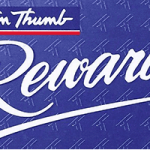Personally, social media can be used for many good causes. In the business world, social media can help a company with good business practices become great and those with lousy business practices become infamous.
Here are a couple companies I’ve dealt with and how and if they handle social media.
 GoDaddy.com – They charged me for some domain names I didn’t want. Their withdrawal from my paypal account was done automatically. Once I noticed the charge, I immediately called their customer service #. Whoa there, I didn’t do that because money is tight and they have no 800 number. Instead, I sent an email, I wrote a blog post describing my ordeal and then tweeted about it. I saw on my stat counter that GoDaddy had visited my website. Okay. I then received an email saying someone would contact me in 24 hours. It didn’t take that long before my problem was solved.
GoDaddy.com – They charged me for some domain names I didn’t want. Their withdrawal from my paypal account was done automatically. Once I noticed the charge, I immediately called their customer service #. Whoa there, I didn’t do that because money is tight and they have no 800 number. Instead, I sent an email, I wrote a blog post describing my ordeal and then tweeted about it. I saw on my stat counter that GoDaddy had visited my website. Okay. I then received an email saying someone would contact me in 24 hours. It didn’t take that long before my problem was solved.
I give GoDaddy an A+ in how they combine search and social media to help its customers.
BankAmerica / AAA – I have a BankAmerica AAA Visa card. I used to have a large balance on it until I discovered they were charging me 26% interest. I was furious when I found out I was being charged this much. I was also furious I hadn’t seen this earlier. After blogging about my shock and awe at such a high interest rate, I then contacted them about my problem.
As with my GoDaddy problem, I looked at my statcounter to see if someone from BankAmerica or AAA would check out my blog post on them, especially since I had tweeted it. Never happened. Also, my problem was not solved to my satisfaction. On a more positive note, there was Victoria, the first person I spoke with at BofA. She was amazing. Helped me with another problem I was having and was one of the most polite customer service reps ever. I even told her how to find my blog post so she could show her supervisors. I had added a comment to my original post, just about her.
As for how BankAmerica combines search and social media to help its customers, I give them an F.
RoundPegg.com – I found this experience on the AfterNext blog. In a blog post titled Job Search 2.0, a guide, a few new job search websites were mentioned. One of these sites was RoundPegg.com. The writer spoke of the unique features on RoundPegg.com but said it, “…was the most curiosity inspiring and the least helpful in terms of what I am trying to do” and admitted it wasn’t very useful for his desired goal.
That’s when the combination of social media and search did it’s trick. The next day, the co-founder of RoundPegg.com commented on this post. He helped explain RoundPegg and how it will be of more value in the future to individual users. After looking at the site myself, I found it is geared toward companies so they can find the prospective employee who matches the culture of the work environment. As we all know it’s not beneficial for a company to stick a square peg in a round hole. I found the site useful for my own website JobLink. At my website, I will encourage employers to use RoundPegg.com.
I like the way Brent, founder of RoundPegg.com uses GoogleAlerts to see what people are saying about his company. He can respond with explanatory comments on blogs or with tweets on Twitter.
I give RoundPegg.com a A+ in how they combine search and social media to help its customers.
I wish more companies would monitor their brand with more intensity. And yes, it is true, maybe they do, but don’t care to respond. There are many other examples of combining social media and search. I mentioned once on Twitter that I had lost something at Holiday World, an amusement park in Indiana. This was actually one of my first ever tweets. Moments later, someone from Holiday World tweeted me to see what I had lost and he’d see if it was in lost and found. No such good fortune, but even from my earliest days on Twitter, I’ve seen how companies with good customer service can use social media to become even better at serving customers.
Have you had any good social media customer service experiences?













Brian,
Great post, and thanks for the attribution back to AfterNext. I think you really have nailed the existing value of Roundpegg’s current service offering, as employee fit is one of the most critical aspects of whether a candidate will be successful in a company. Almost all of us have the ability to learn, but it is hard to develop professional acumen in a setting where you cannot feel comfortable with the culture.
As for not finding what I was looking for, the day I wrote “Job Search 2.0,” I was prospecting, and Roundpegg does not provide this yet. I ended up relying on the personality, skills and culture profiles the following week as I started interviewing, and this experience was described in a follow-up post: “Revisiting Online Career Recruiting.”
I completely agree with your recommendation to employers that they integrate Roundpegg into their selection process, as determining who a company wants includes not just a candidate’s skills, but also who they are as a person.
Regarding Brent, and I commented on this in AfterNext: his approach to engagement is a shining beacon to what “social” should mean in terms of businesses online. That he found my blog, and will likely find this one, addressed you and the rest of my readers, and followed up consistently as the conversation evolved and additional posts were made, I cannot help but feel that some of the old honor in doing good business is returning with this wave of entrepreneurship, displacing much of the boilerplate automated responses that have become all to common.
Posted by Jordan (InDasein) | June 8, 2011, 11:38 am